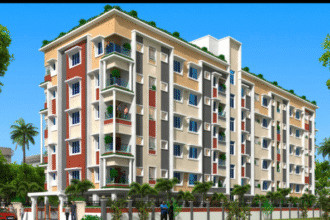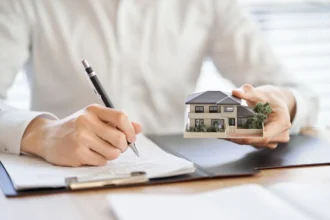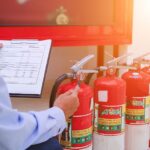Renting a home comes with certain expectations, especially when it comes to safety. As a tenant, you have the right to live in a secure and well-maintained property. But what exactly are your landlord’s responsibilities when it comes to your safety? In the UK, the law clearly outlines what landlords must do to protect tenants and ensure the property is safe and habitable. This includes addressing potential hazards through professional assessments, such as Asbestos Surveys London, particularly in older buildings where asbestos may still be present. Understanding these responsibilities can help you spot issues early and take the right steps if something goes wrong. Whether you’re renting a flat, a house, or a room, this guide will explain your landlord’s legal duties when it comes to your safety.
General Safety Responsibilities
Your landlord must make sure the property is safe and suitable for living from the very beginning of your tenancy and throughout your stay, advises Sun-Pro Realty Management Solutions. This includes taking care of the structure and exterior of the building, including walls, roof, windows, and doors. The property must also have working water, gas, and electricity.
A safe home means more than just working utilities. It also means the property should be free from any serious hazards. Landlords must follow the Housing Health and Safety Rating System (HHSRS), which helps local councils assess safety risks in homes. If any hazards are found—like damp, mould, fire risks, or poor lighting—your landlord must take action to fix them.
Gas Safety
One of the most important safety rules involves gas. Every landlord is legally required to ensure that all gas appliances, fittings, and flues are safe. This includes items like gas boilers, cookers, and heaters.
Your landlord must arrange for a Gas Safe registered engineer to inspect the property every year. After this inspection, they will receive a Gas Safety Certificate, which must be given to you within 28 days of the check or at the start of your tenancy. If your landlord does not provide this certificate, it is a serious issue and should be reported.
Your landlord is also responsible for ensuring that any repairs to gas appliances are carried out quickly and by qualified professionals.
Electrical Safety
Electrical systems must also be safe and in good working order. From 1 July 2020, landlords in England are required to have the electrical installations in their properties inspected and tested by a qualified electrician at least every five years.
This Electrical Installation Condition Report (EICR) must be provided to new tenants before they move in and to existing tenants within 28 days of the inspection. If the report finds any urgent issues, the landlord must fix them quickly.
Your landlord must also ensure that electrical appliances they supply, such as fridges or ovens, are safe to use. While you are responsible for your own electrical devices, any item that comes with the rental property must meet safety standards.
Fire Safety
Fire safety is a major part of your landlord’s responsibilities. They must ensure that there are working smoke alarms on every floor of the property and a carbon monoxide alarm in any room with a solid fuel-burning appliance, such as a wood stove or coal fire.
These alarms must be tested and in working order at the start of each tenancy. If you find an alarm not working after you move in, your landlord must repair or replace it. In some cases, especially in houses in multiple occupation (HMOs), landlords may need to provide additional fire safety measures such as fire extinguishers, fire doors, or a full fire alarm system.
Landlords must also ensure that escape routes are kept clear and that furnishings meet fire resistance regulations.
Repairs and Maintenance
Your landlord is responsible for keeping the property in good repair. This includes the structure and exterior of the building, as well as sinks, baths, toilets, boilers, radiators, and hot water systems.
If something breaks, leaks, or becomes unsafe, your landlord must fix it in a reasonable amount of time. The exact timeframe may depend on how urgent the repair is. For example, a broken boiler in winter or a gas leak should be treated as an emergency.
It’s important that you report issues as soon as you notice them. Landlords are not responsible for fixing problems they are unaware of.
Security of the Property
Your landlord must also take reasonable steps to ensure that the property is secure. This includes providing locks on doors and windows that work properly. If a lock breaks, or a window won’t close securely, it’s your landlord’s duty to fix it.
While landlords are not responsible for preventing crime, they must provide a basic level of security. For example, communal entrances in a block of flats should be secure and regularly maintained.
Responsibilities in Shared Housing
If you live in a house in multiple occupation (HMO), your landlord has extra responsibilities. HMOs are properties where at least three tenants live, forming more than one household and sharing facilities like a kitchen or bathroom.
In these cases, landlords must ensure that common areas are clean and safe, carry out regular safety checks, and follow stricter rules for fire safety. In some locations, landlords must also have an HMO licence from the local council.
Dealing with Unsafe Conditions
If you believe your landlord is not meeting their safety responsibilities, the first step is to write to them about the issue. Always keep a record of your communication. If they do not respond or fix the problem, you can contact your local council.
Councils have the power to inspect properties and enforce repairs under the Housing Act 2004. They can serve improvement notices or, in serious cases, carry out the repairs themselves and charge the landlord.
It’s also important to know that you cannot legally be evicted for asking for repairs. The law protects tenants from what’s known as retaliatory eviction.
Conclusion
Tenant safety is not just a moral responsibility for landlords—it is a legal requirement. From gas and electrical safety to fire protection and repairs, landlords are required to provide a safe living environment. As a tenant, understanding your rights and your landlord’s duties can help you feel more secure in your home.
If you ever feel that your safety is at risk, don’t ignore the issue. Communicate clearly with your landlord and take steps to report any problems to your local council if necessary. Everyone deserves to live in a home that is safe, healthy, and properly maintained. If you want to stay updated with posts like this, please follow us on REELS MEDIA.

















